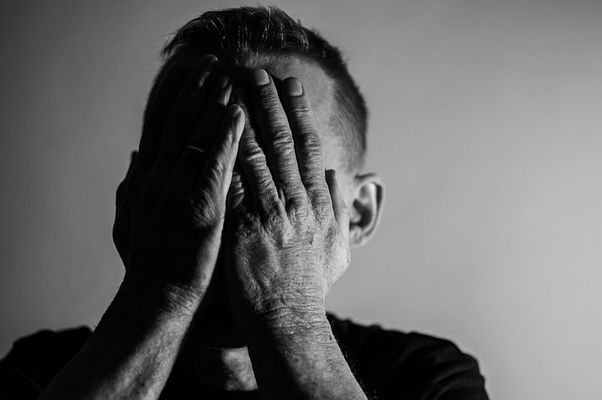4.1.2
Sociological Explanations of Crime
Sociological Factors Affecting Criminal Behaviour
Sociological Factors Affecting Criminal Behaviour
There are many different explanations of crime and deviance, the main ones fall into three categories: biological, psychological and sociological theories.


Peer groups
Peer groups
- Peer groups can affect people’s behaviour as human beings need to belong.
- To be able to belong people have to follow what their peers suggest in order to be accepted.
- If the values of the group differ from the ones of the society then they form subcultures which may lead to criminality.


Relative deprivation
Relative deprivation
- Relative deprivation refers to lacking resources that majority of people have, e.g. the latest gadgets.


Merton's strain theory
Merton's strain theory
- Strain theory (Merton):
- Crime comes as a result of the strain people feel when they can’t achieve society’s goals and this is why they turn to different methods to achieve them.


Merton
Merton
- Merton is a functionalist.
- He believed that deviance exists because of the culture and structure of society.
- He believed in value consensus, i.e. everyone has the same values.
- However, not everyone gets the same chances to realise these goals because of different life chances. E.g. coming from different social classes.


Merton cont.
Merton cont.
- This might result in anomie, i.e. the breakdown of norms which are seen as accepted.
- Everyone wants to live the American dream but not everyone can do so which leads in the search of any possible way to achieve it, legal or illegal.
- He argued that there are five possible ways in which individuals could try to succeed in achieving these goals in American society.
Strain Theory (Merton, 1938)
Strain Theory (Merton, 1938)
Crime comes as a result of the strain people feel when they can’t achieve society’s goals and this is why they turn to different methods to achieve them. He gives five ways individuals try to achieve these goals in American society.


Conformity
Conformity
- Conformity: achieve success by conventionally accepted means.
- E.g. by gaining educational qualifications which in turn give them access to secure, well paid employment.
- Other conventional routes to success include talent, hard work and ambition.


Innovation
Innovation
- Innovation: for those who couldn’t succeed using conventionally accepted routes and turn to deviant means, usually crime.
- This path is often followed by individuals who came from the lower levels of society and had less chance of gaining the educational qualifications which would ensure secure employment.


Ritualism
Ritualism
- Ritualism: for those who abandon conventional success goals because they are unable to innovate as they are conformists and remain stuck in low paid, low status jobs where they may exhibit an enthusiasm for rules.


Retreatism
Retreatism
- Retreatism: this describes individuals who ‘drop out’ of society.
- E.g. outcasts of all kinds such as drug addicts who have abandoned success goals and means of achieving them.


Rebellion
Rebellion
- Rebellion: for individuals who reject success goals and the usual means of achieving them but replace them with different goals.
- They are deviant because they want a new society.
- They are seen as members of a ‘rising’ social class who may even try to revolt.
Criticisms of Merton
Criticisms of Merton
Crime comes as a result of the strain people feel when they can’t achieve society’s goals and this is why they turn to different methods to achieve them. He gives five ways individuals try to achieve these goals in American society.


Power relations
Power relations
- Merton has been criticised for not taking into account power relations in society.
- For example by failing to consider who makes the laws and who benefits from them.


Value consensus
Value consensus
- His critics also argue that he wrongly assumes that there is ‘value consensus’ in American society.


Deterministic
Deterministic
- He has been criticised for being ‘deterministic’, i.e. he fails to explain why only some individuals who experience anomie become criminals.


Middle class crime
Middle class crime
- He is seen as exaggerating working class crime and underestimating middle class, ‘white collar’ crime.
1The Sociological Approach
1.1Introduction to Sociology
1.2Sociological Approaches
1.3The Consensus vs. Conflict Debate
2Families
2.1Functions of Families
2.2Family Forms
2.3Conjugal Role Relationships
2.4Changing Relationships Within Families
2.5Criticisms of Families
3Education
3.1Roles & Functions of Education
3.2Processes Within Schools
4Crime & Deviance
4.1The Social Construction of Crime
4.2Social Control
4.3Criminal & Deviant Behaviour
5Social Stratification
5.1Social Stratification
5.2Poverty as a Social Issue
6Sociological Research Methods
6.1Research Methods
6.1.1Research Design
6.1.2The Scientific Method
6.1.3Other Considerations
6.1.4Primary Sources
6.1.5Secondary Sources
6.1.6Surveys
6.1.7Sampling
6.1.8Questionnaires
6.1.9Interviews
6.1.10Observation
6.1.11Statistics
6.1.12Case Studies
6.1.13Longitudinal Studies
6.1.14Ethnography
6.1.15Experiments
6.1.16Small Scale Research
6.1.17End of Topic Test - Research Methods
Jump to other topics
1The Sociological Approach
1.1Introduction to Sociology
1.2Sociological Approaches
1.3The Consensus vs. Conflict Debate
2Families
2.1Functions of Families
2.2Family Forms
2.3Conjugal Role Relationships
2.4Changing Relationships Within Families
2.5Criticisms of Families
3Education
3.1Roles & Functions of Education
3.2Processes Within Schools
4Crime & Deviance
4.1The Social Construction of Crime
4.2Social Control
4.3Criminal & Deviant Behaviour
5Social Stratification
5.1Social Stratification
5.2Poverty as a Social Issue
6Sociological Research Methods
6.1Research Methods
6.1.1Research Design
6.1.2The Scientific Method
6.1.3Other Considerations
6.1.4Primary Sources
6.1.5Secondary Sources
6.1.6Surveys
6.1.7Sampling
6.1.8Questionnaires
6.1.9Interviews
6.1.10Observation
6.1.11Statistics
6.1.12Case Studies
6.1.13Longitudinal Studies
6.1.14Ethnography
6.1.15Experiments
6.1.16Small Scale Research
6.1.17End of Topic Test - Research Methods
Unlock your full potential with Seneca Premium
Unlimited access to 10,000+ open-ended exam questions
Mini-mock exams based on your study history
Unlock 800+ premium courses & e-books
